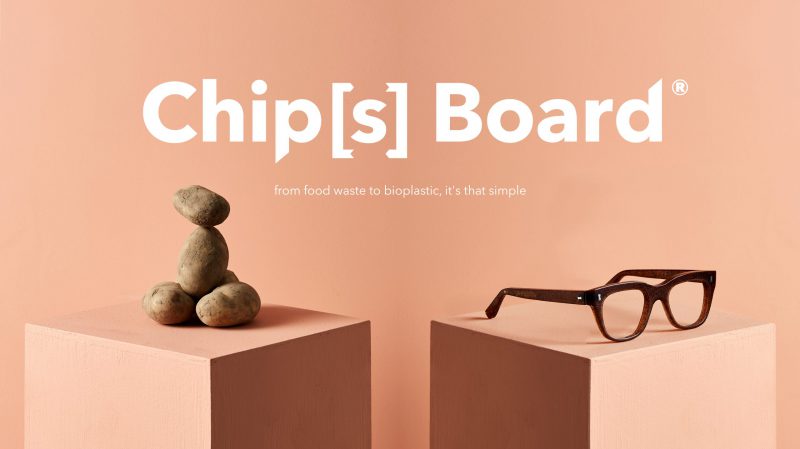Turning AgriFood waste into plastics: a KTN SPARK Award winner success story

The KTN SPARK Awards encourage new collaborations between the research community and industry. Winner Chip[s] Board has been working with the Biorenewables Development Centre.
Chip[s] Board is one of the ten winners of the KTN SPARK Awards, all involved in the Livestock and Aquaculture, Food and Drink, Industrial Biotechnology, and Plants & Crops sectors.
Each winning SME has teamed up with a research partner (university or Research Technology Organisation) to work on a project like a student project, data analysis, technical consultancy, a feasibility study or literature review. The SPARK Awards are about boosting interaction, new research and technology transfer projects.
David Telford, Head of AgriFood at KTN shared why he thinks the KTN SPARK Awards are so important:
“Collaborations with a research partner are a really efficient way to help SMEs to fast track innovative projects. That’s why awards like the KTN SPARK Awards are so important, they really help to build confidence and lead to more collaborations. It is great to hear how successful the Chip[s] Board and the BDC project has been. We look forward to hearing how this collaboration progresses in future.”
Chip[s] Board is a London-based producer of revolutionary bioplastics and bioplastic composites made from the food we leave behind. The company was awarded funding from the KTN SPARK Awards to work with the Biorenewables Development Centre (BDC) to investigate the use of AgriFood residues and side streams for their bioplastic production.
For the company’s founders Rowan Minkley and Rob Nicoll, it was clear that the design industry is under growing pressure to find ways to become more sustainable. Designers want to replace conventional petrochemical-based materials with natural, organic and biobased materials but without compromising aesthetics and functionality. With their passion for designing and sustainability, Rowan and Rob developed new bioplastic materials and composites using potato waste from industrial food processing which can be reused, reprocessed and are biodegradable. The Parblex® Plastic is a translucent pure or fibre reinforced bioplastics with incredible surface finish and durability for fashion and interior design. Using potato waste from McCain UK, the company established a closed-loop self-sustaining circular economy business model.
After further discussions with food manufactures, Chip[s] Board started looking at the use of other food waste streams to produce Parblex® Plastics.
The KTN SPARK Award enabled the BDC’s team to test various food wastes as a feedstock for a microbial fermentation process to obtain an organic acid used in the production of Parblex® bioplastics. Using various bacterial species typically used by the dairy industry to give a characteristic sour taste to yoghurts, cheeses and fermented food products, the team at the BDC showed that these microbes can produce bioplastic precursor when grown on various food waste streams.
Serena Broadway, Knowledge Transfer Manager AgriFood at KTN, has been organising the KTN SPARK Awards since their inception. She commented:
“SPARK Awards help to de-risk and fast track collaborations that would take longer to progress. This means that new products and technologies can get to market faster. The initial data can also be used to evidence any future follow-on funding.”
Rosie Nolan who conducted the project’s research thinks that these results offer the potential to further optimise the fermentation process. She commented:
“The fermentation development work yielded extremely promising results, the quantities of organic acid produced were comparable to those observed in pure sugar fermentations. I believe the conversion yields could be optimised even further by using a Design of Experiment approach”.
For the Chip[s] Board’s team, this is an exciting opportunity for utilising the abundant resources that are currently mismanaged to produce their bioplastics materials rather than continuing to process virgin materials. Rowan Minkley commented:
“Product availability varies enormously across regions and countries so diversifying the feedstocks used in the production of Parblex® is a key requirement to enable commercialisation and widespread manufacturing”.
With the support of the KTN SPARK Award, Chip[s] Board obtained lab-scale evidence that various food waste by-products can be successfully used as a feedstock for microbial fermentation to produce bioplastics precursors. The company is planning to further explore the process which promises to use biological resources and cut our dependence on fossil resources.
This article was reproduced with the permission of the Biorenewables Development Centre. (BDC) and Chip[s] Board.

